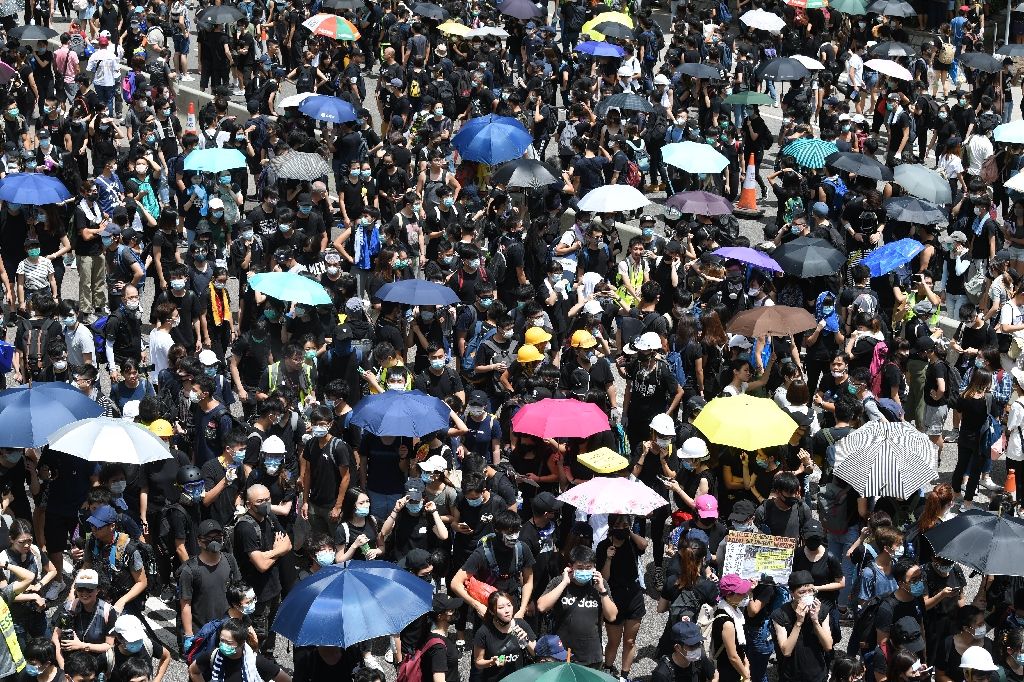Opposition Erased
The decision to dissolve the Democratic Party in Hong Kong, its largest opposition grouping, is stark confirmation of the city’s shifting political landscape.
“The increased polarisation within Hong Kong society underscores the need for a broad-based and sincere dialogue between the government, protestors, and citizenry writ large,” it added.

Hong Kong protests (Photo: AFP)
The US government on Monday condemned the violence witnessed during the anti-government protests in Hong Kong and called for both police and protestors alike to exercise restraint.
According to the statement that was issued by the US State Department spokesperson Morgan Ortagus read that Washington urges Hong Kong government to build on its dialogue with the public and begin efforts to address the underlying concerns driving the protests. It also urged the protestors to respond to efforts at dialogue.
Advertisement
“The increased polarisation within Hong Kong society underscores the need for a broad-based and sincere dialogue between the government, protestors, and citizenry writ large,” it added.
Advertisement
“The United States is watching the situation in Hong Kong with grave concern. We condemn violence on all sides, extend our sympathies to victims of violence regardless of their political inclinations, and call for all parties — police and protesters — to exercise restraint,” the statement further added.
Washington urged Beijing to honour the commitments it made in the Sino-British Joint Declaration, including commitments that Hong Kong will “enjoy a high degree of autonomy” and that the people of the region will enjoy human rights, the freedom of express and peaceful assembly.
Earlier on Monday, Hong Kong police shot and critically wounded a 21-year-old protester and a man was set on fire in escalating violence that prompted leader Carrie Lam to denounce the demonstrators as “enemies of the people”.
Hong Kong has been upended by five months of huge and increasingly violent rallies, but Beijing has refused to give in to most of the movement’s demands.
Tensions have soared in recent days following the death on Friday of a 22-year-old student Alex Chow, who succumbed to serious injuries sustained from a fall in the vicinity of a violent clash the weekend before.
The city has seen four days of consecutive protests since the student’s death as well as tens of thousands attending mass vigils. Using online messaging forums, activists had called for a general strike.
Earlier in the month, the city’s police fired teargas into election candidate meetings in the Asian financial hub to disperse pro-democracy activists.
The protests, which have been drawing massive crowds since June following a contentious proposed extradition law that has been pulled by the government, have mutated into a movement that seeks to improve the democratic mechanisms that govern Hong Kong and safeguard – or expand – the region’s partial autonomy from Beijing.
In 2018, the Hong Kong government had disqualified the candidacy of another pro-democracy activist, Agnes Chow, for the Legislative Council by-election in March of the same year due to her stance on advocating self-determination for the former British colony.
The controversial China extradition bill was withdrawn in early September but the movement has morphed into a wider campaign for greater democracy and against alleged police brutality.
Advertisement